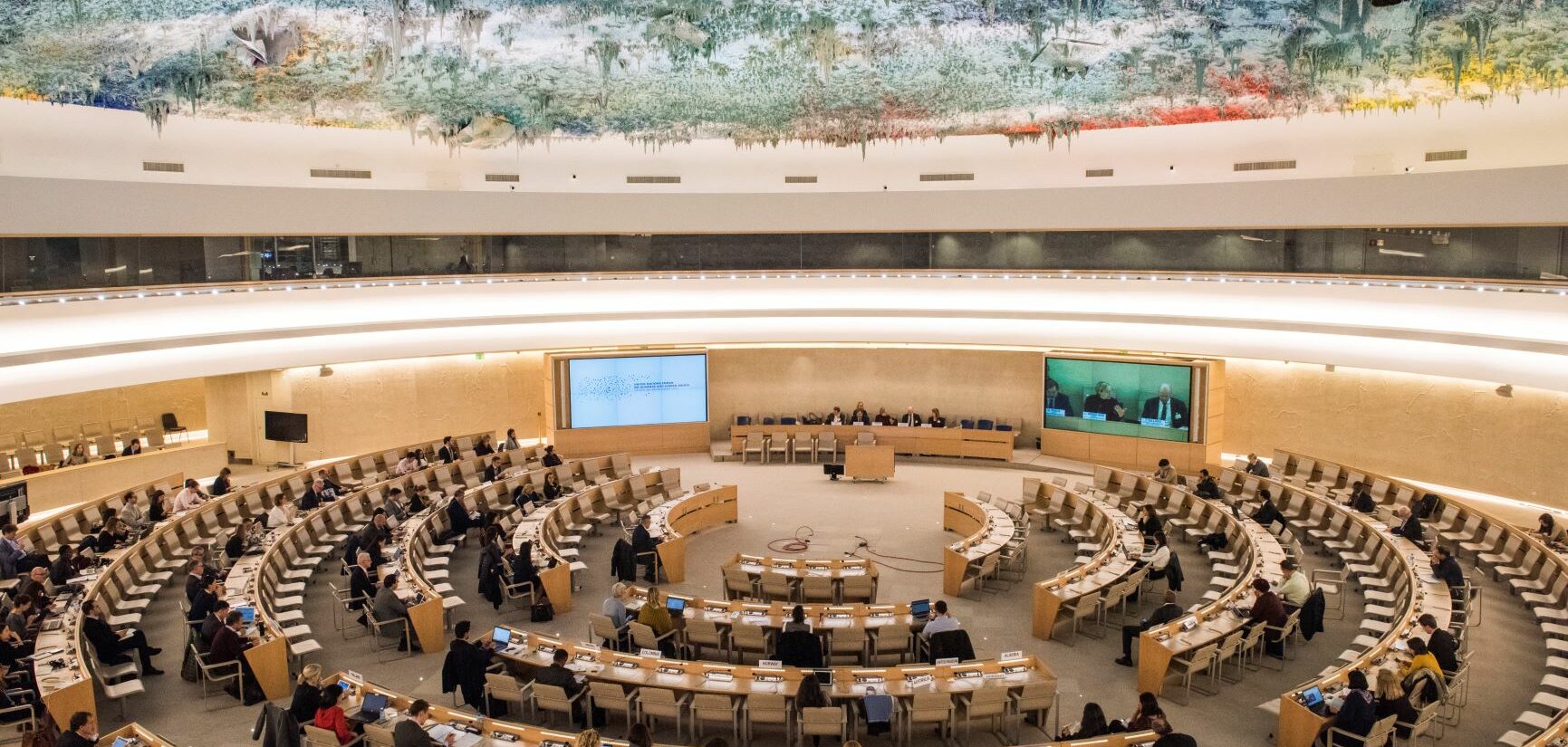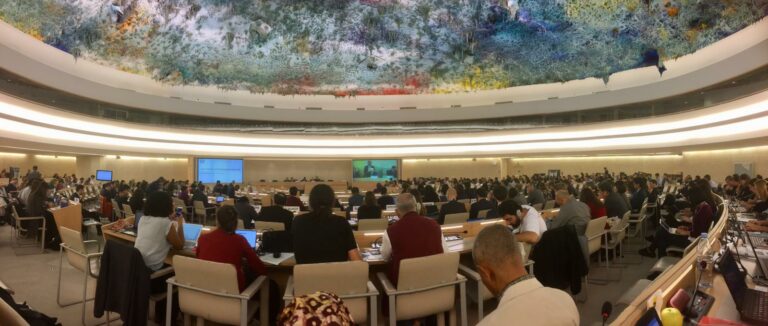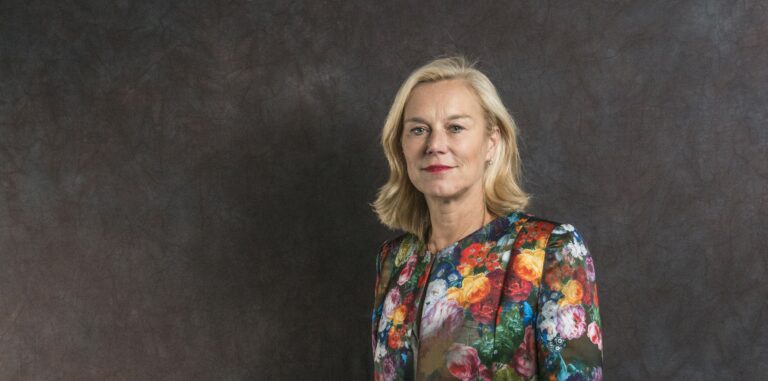
Re-cap: negotiations over the revised draft of a binding treaty on business and human rights
During the week of 14-18 October 2019, UN Member States negotiated over the revised draft of a binding instrument which aims to regulate (in international human rights law) the activities of transnational corporations and other business enterprises(opens in new window) .
The negotiations took place at the UN Human Rights Council, in the context of the 5th session of the so-called ‘open-ended intergovernmental working group’ (IGWG)(opens in new window) which was formed in 2014, under Resolution 26/9(opens in new window) .
Like previous years, this treaty process continues to attract a lot of civil society engagement and together with many representatives of social movements, trade unions and civil society organisations, SOMO participated in the session by contributing substantively to the discussion on content of the draft treaty. Our objective: realising an effective treaty that fixes the gaps in the protection of human rights in the context of global value chains, trade and investment, and improves access to remedy for victims of human rights abuse by corporations.
Negotiations
Subject of negotiation was the revised draft treaty, which has changed considerably from the zero draft that was presented last year. Some states welcomed the changes, others did not, and the same holds for members from civil society. Further analysis is needed to see where potential convergence lies between states positions.
Many states came prepared with their positions on the content of the revised draft. The EU did not come with a negotiation mandate so did not negotiate over the text, but did participate with a number of questions, signalling more engagement in the process. France, Belgium and Spain also engaged as individual UN member states, in contrast with last year. This suggests growing momentum within the EU.
The lack of an EU negotiation mandate on the current treaty text was in stark contrast with its well-developed negotiation position at the UNCITRAL session in Vienna, which took place simultaneously. The EU’s prioritisation of investor rights over the rights of people who are negatively affected by these same investments needs to be urgently corrected by the new EU Commission.
As the negotiations move forward, civil society will need to maintain an active participation in the process with the aim to protect, strengthen and add the treaty provisions necessary to achieving effective human rights protection and corporate accountability.
SOMO’s contributions
Similar to previous years, SOMO collaborated with like-minded organisations to contribute substantively to the negotiations on the revised draft, most importantly on the topics of Prevention, Liability, Jurisdiction, Applicable Law, and on Compatibility of the treaty with other bilateral and multilateral agreements
These are the contributions made:
- Prevention statement presented by SOMO (opens in new window)
- Prevention statement presented by Al Haq(opens in new window)
- Liability statement presented by FI(opens in new window)
- Liability statement presented by FIDH(opens in new window)
- Article 7/8/9/ statement presented by Al Haq(opens in new window)
- Trade & Investment statement on art. 12, presented by CCFD(opens in new window)
- Closing statement presented by FI(opens in new window)
https://youtu.be/hc2vbaIXET8
Next steps
The recommendations and conclusions of this fifth IGWG session – which can be found at the bottom of the draft report(opens in new window) – were adopted by the IGWG with consensus, this time with support from the EU, unlike last year. This too suggests a more positive stance towards the process from the EU.
While some States, including Brazil, Russia and China, sought to limit civil society participation in the continuation of this treaty process, other States, including most prominently the EU, Egypt and Azerbaijan successfully protected civil society space.
Participating states agreed on the need for more frequent and direct substantive negotiations between States. The recommendations adopted by the Chair provide for informal consultations before the next IGWG session, which serve as input for the second revised draft of the treaty.
The sixth session will be held in 2020, on the basis of the second revised draft, to be released before the end of June 2020, and will include more direct negotiations between States, while civil society participation is guaranteed.
Do you need more information?
-

Lydia de Leeuw
Researcher
Related content
-
The Netherlands must ensure that human rights prevail over businessPublished on:Posted in category:Opinion
-
 Re-cap: negotiations over the Zero Draft of a binding treaty on business and human rightsPosted in category:NewsPublished on:
Re-cap: negotiations over the Zero Draft of a binding treaty on business and human rightsPosted in category:NewsPublished on: -
Civil society’s proposal for the Conclusions and Recommendations of the Report of the 4th session of the UN Binding Treaty negotiationsPosted in category:Published on:Statement
-
The Netherlands should provide input for a binding UN treaty on business and human rightsPosted in category:Published on:Statement
-
 Dutch civil society organisations sound the alarm: Dutch Minister must save human rights treatyPosted in category:NewsPublished on:
Dutch civil society organisations sound the alarm: Dutch Minister must save human rights treatyPosted in category:NewsPublished on:


